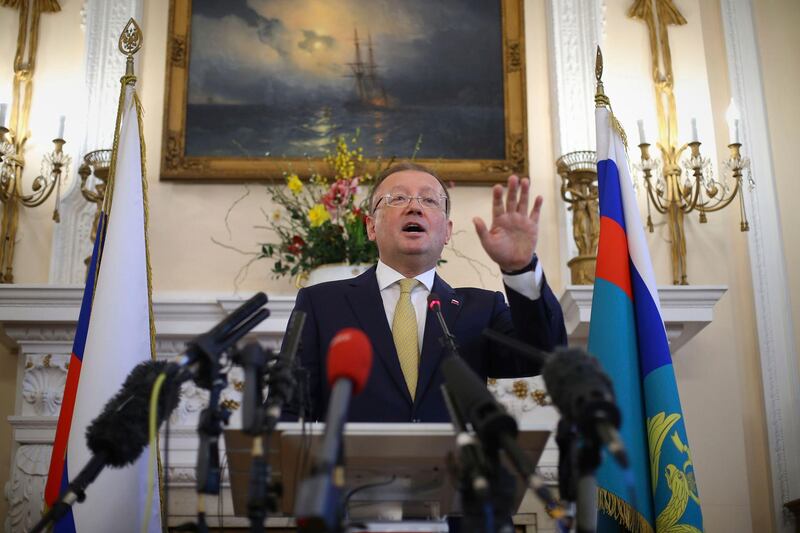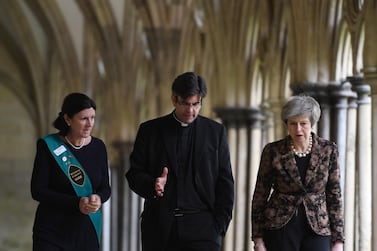Novichok survivor Charlie Rowley said he did not get any answers from the Russian ambassador in London over the nerve agent attack that killed his partner.
After a 90-minute meeting with Alexander Yakovenko in the UK capital, Mr Rowley said he still believed the country – which denies the accusations – was responsible for the attack that occurred in Salisbury in March 2018.
"I went along to ask them 'Why did your country kill my girlfriend?', but I didn't really get any answers," Mr Rowley told British newspaper the Sunday Mirror.
"I liked the ambassador, but I thought some of what he said trying to justify Russia not being responsible was ridiculous,” he said.
Russia has been scornful of UK accusations, even after two former Kremlin agents had been named as suspects.
Mr Rowley, whose partner Dawn Sturgess died after accidentally coming in contact with Novichok, said he did “find out some things I didn’t know before,” but was still convinced Russia was behind the attack.
Forty-five-year-old Mr Rowley was exposed to the nerve agent used to attack ex-spy Sergei Skripal and his daughter Yulia. Ms Sturgess, 44, fell ill months later after coming into contact with a discarded perfume bottle believed to contain the nerve agent and died in July.
Mr Rowley said he still suffers from the long-term effects of his exposure to the substance.
Mr Yakovenko, who was asked a dozen questions by the survivor at the meeting, said the substance used had not come from Russia as the country only had small amounts of Novichok.
Following the encounter, the Russian ambassador claimed he and Mr Rowley were "on the same page" in both wanting a report into the investigation to be published.
"I've seen a normal person who has really suffered a lot and who has suffered a tragedy in his life. If he asked for it, I would give him support," Mr Yakovenko said.
Russia has accused the UK of withholding all sorts of information on the case and painted the Novichok attack as an elaborate plot to frame the country. Vladimir Putin's spokesman upbraided British officials, including Theresa May, for linking Russia's president directly to the Salisbury attack.
Alexander Petrov and Ruslan Boshirov, identified as Russian intelligence officers, have been identified as the perpetrators of the attack. The suspects face charges of conspiracy to murder Mr Skripal, the use and possession of Novichok contrary to the Chemical Weapons Act, and causing grievous bodily harm.








